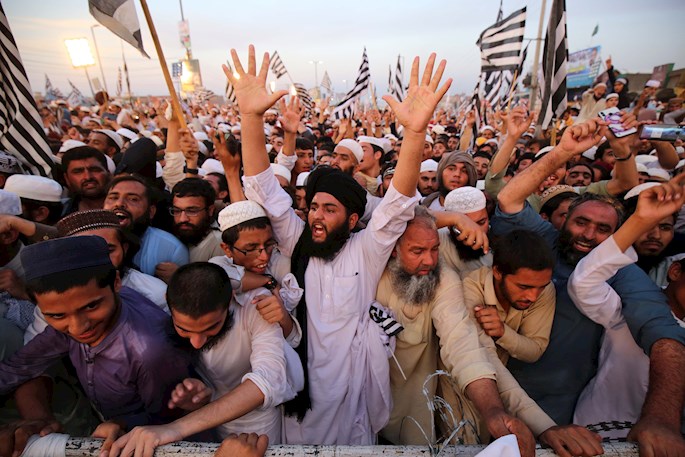Ahmadi minority faces increasing violence in Pakistan
Published : 26 Nov 2020, 23:50
The Ahmadi religious minority has been facing increased sectarian violence with at least five killings of members of their community in recent months in Pakistan, human rights organizations and the persecuted Muslim sect denounced on Thursday, reported EFE-EPA.
Amnesty International (AI), Human Rights Watch and the International Commission of Jurists called on the Pakistani authorities to urgently and impartially investigate the five murders of people of the Ahmadi community that have occurred since July.
"There are few communities in Pakistan who have suffered as much as the Ahmadis. The recent wave of killings tragically underscores not just the seriousness of the threats they face, but also the callous indifference of the authorities," Amnesty International's South Asia head Omar Waraich said in a statement.
"Pakistani authorities have long downplayed, and at times even encouraged, violence against Ahmadis, whose rights to freedom of religion and belief are not respected under Pakistani law," the three nonprofits said in a joint statement.
Saleem Uddin, a spokesperson for the Ahmadi community, told EFE that the number of killings of people from their group in 2020 was already the highest in five years.
Moreover, Uddin underlined that there was an increase in the number of Ahmadis imprisoned for allegedly committing blasphemy, with 12 cases this year, which takes the total number of blasphemy cases against the community to 17.
The most recent killing occurred on Friday last week when a teenager went to the house of an Ahmadi family and opened fire, killing one person and injuring two others.
The suspect told the police that he had committed the attack "because of religious differences with the family."
The Pakistani Ahmadis are a Muslim sect founded in the 19th century in India by Mirza Ghulam Ahmad, whom they consider a prophet, which clashes with the Islamic belief of Muhammad as the last messenger of God.
This minority community are seen as blasphemers by the orthodox Muslim groups and have long been victims of religious persecution.
As per the country's penal code, they are prohibited from "impersonating Muslims", calling their places of worship mosques or selling texts of their sect, which could lead to penalties of up to three years. They are even forbidden from using the typical Muslim greeting "assalamu alaikum".
Official government documents, such as passports, mention them solely as Ahmadis.
The discrimination suffered by this community was reflected in October when the participation of Atif Mianen - a professor of economics at the Princeton University - in an online seminar organized by a Pakistani business institute had to be canceled in the face of threats by extremists as he is an Ahmadi.
"Our society has dehumanised the Ahmadi community to a point where they are defined only by their religious belief, rather than being seen as what they are: citizens of Pakistan who have an inalienable right to the protection of the state," the country's leading english newspaper Dawn said in an editorial regarding the recent killings.


